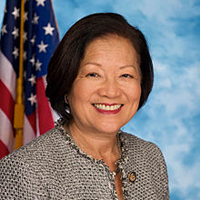ANALYSIS: Internet Tax Hurts Consumers, Helps Retailers
After voting in favor of the “Marketplace Fairness Act” in the US Senate on Monday, Sen. Mazie Hirono released a statement praising the so-called Internet Sales Tax as a boon to entrepreneurs in Hawaii.
In her statement, Hirono claimed the bill would “help level the playing field for Hawaii small businesses.”
Would an internet sales tax really be helpful to Hawaii businesses? What about Hawaii consumers?
Who Will Pay What
To understand the proposed “Net Tax,” it’s best to look at how things currently work for Hawaii businesses and consumers who choose to buy and sell goods online.
At the moment, residents can dodge the state’s 4% general excise tax on goods they purchase from online merchants like Amazon.com and Overstock.com. Should the Net Tax go into effect, all those e-books and discount watches will suddenly become 4% more expensive.
Just like Hawaii consumers, Hawaii-based businesses are currently able to duck the 4% general excise tax when they sell goods and services online to people located away from Hawaii’s shores.

Online coffee retailers with more than $1 million in sales could face serious burdens under a ‘Net Tax.’ Photo courtesy of the Hawaii Department of Agriculture.
But unlike shoppers, Hawaii businesses selling to the mainland won’t have to sweat the 4% Hawaii GE tax if the “Marketplace Fairness Act” goes into effect. Instead, they will have to pay whatever taxes exist in the state they are selling goods to.
So for instance, a Californian customer of a Hawaii coffee company shipping roasted beans would be hit with that state’s 7.5% sales tax. But if those same beans were bought a little further north by someone online in Oregon, there would be no sales tax whatsoever.
In all, Hawaii online businesses subject to the new rules would have to keep track of tax policies in 45 different states (and the District of Columbia) to avoid running afoul of the law.
Under the bill before congress, state governments must provide companies with free software for calculating taxes before they can collect under the new measure.
Exempt from the new taxes would be businesses with online sales of less than $1 million.
While $1 million sounds like a lot, it applies to gross sales, as opposed to profits. For Hawaii businesses operating on slim margins and high energy, land, and shipping costs, 7.5% (in the case of California) would be more than enough to cause a major cash crunch. Thus, Hawaii’s online businesses would be at a disadvantage in competing with mainland counterparts with this tax.
Online retailers like Ebay are fighting to raise the exemption to $10 million, or for businesses with less than 50 employees.
Who Benefits
State governments, for starters. The Congressional Research Service estimated that $11.4 billion in tax revenue was lost in 2012 due to online sales. With Hawaii ranked as one of the states most reliant on sales tax revenue, it’s not surprising Hawaii’s congressional delegation would be under pressure to approve a Net Tax.
Although state governments are (not surprisingly) leading the charge to levy a Net Tax, the issue has led to quite a few “public/private” partnerships.
The bill currently before congress has the support of not only the National Retail Federation, but also online-giant Amazon, who began collecting state taxes after opening warehousing operations in at least 9 different states.
An internet sales tax would help to shield retailers as large as Walmart and as small as local jewelry stores from internet-based competition.
But whatever the fate of the measure, Sen. Hirono herself may have already benefited from it.
According to the Center for Responsive Politics, Hirono received $413,108 from interest groups supporting the law, while only $11,000 can be traced to groups in opposition.
Fellow Sen. Brian Schatz, although a co-sponsor of the bill, received zero campaign dollars from either side as of the last reporting period.
The Senate version of the bill passed with a 69-27 vote, and now goes before the House of Representatives, where it faces a mixed reception from Republican lawmakers.
Should the bill get passed quickly, the earliest it could go into effect would likely be October of 2013.








